The Voice referendum: Why Peter Dutton is the Yes campaign’s best weapon
Next week Australians will officially learn when they will go to the polls, and Voice supporters believe Peter Dutton is the key to them winning the referendum.
NSW
Don't miss out on the headlines from NSW. Followed categories will be added to My News.
Voice supporters believe Peter Dutton — and a truckload of cash — is the key to them winning the referendum.
Meanwhile, the No case believes it just has to concentrate on winning over South Australia or Tasmania to defeat the Voice.
Next week Australians will officially learn when they will go to the polls, when Anthony Albanese travels to the outer Adelaide suburb of Elizabeth on Wednesday to finally reveal the Voice referendum will be held on October 14.
The announcement of a six-week sprint to the finish line will come as a relief to both the Yes and No campaigns, which have been circling each other all year.
The Saturday Telegraph spoke to insiders in both camps, as well as the Labor and Liberal officials who will be mobilising their party campaign resources, to find out how each of them plans to win.
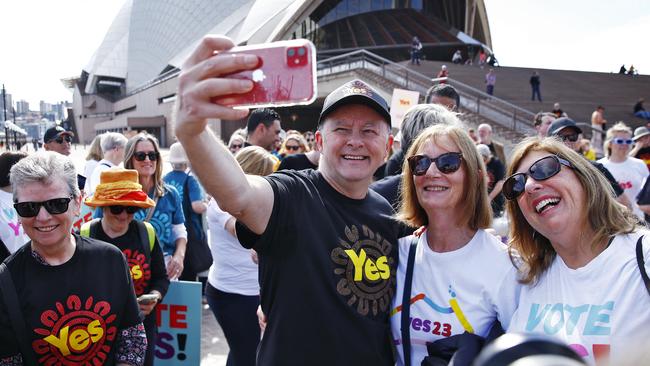
They two sides agreed that, despite having millions more dollars in their war chest than their opponents, the Yes23 team’s job is much harder.
The reason for that is a structural one — the Constitution says that for a referendum to pass it needs to get not just a majority of votes across all of Australia, it also needs a majority of votes in a majority of states.
This means that not only does Yes have to win four states while No only has to win three, it also has to campaign everywhere.
“We need to win four states and fifty per cent plus one,” a senior Yes23 strategist said.
“We can’t write off a state, because we need it to form the national majority.
“So we can’t just say we won’t advertise in Queensland but we’ll buy 100 per cent of the Tasmanian market.”
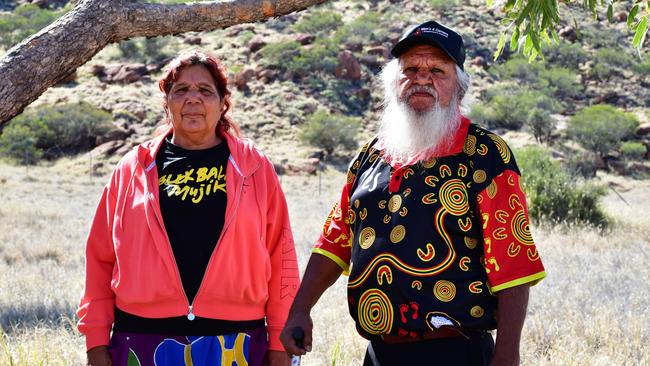
This advantage the constitution hands the No case is twofold.
Because No isn’t worried about the national total, not only does it not need to bother spending any money at all in the states it knows it can’t win, it doesn’t need to spend a lot of money in those states it reckons are already in the bag.
“Our plan from the start was to run a battleground state strategy,” a spokesman for the peak No campaign body, Australians for Unity, explains.
“The pathway for us to win was always to knock over three battleground states out of Western Australia, Queensland, South Australia and Tasmania. That hasn’t changed.”
At this point the No case believes it is well ahead in WA and Queensland, meaning it can concentrate on winning in Tasmania or SA.
What has changed in recent months, its spokesman says, is the national polls that suggest a majority of voters are now against the Voice.
“I think they’ve found themselves in a place they didn’t expect to be,” the No spokesman said.
“Their problem is not only are they losing in a couple of battleground states, they’re behind nationally. Not only do they have to defend the battleground states, they also have to defend their national vote.”
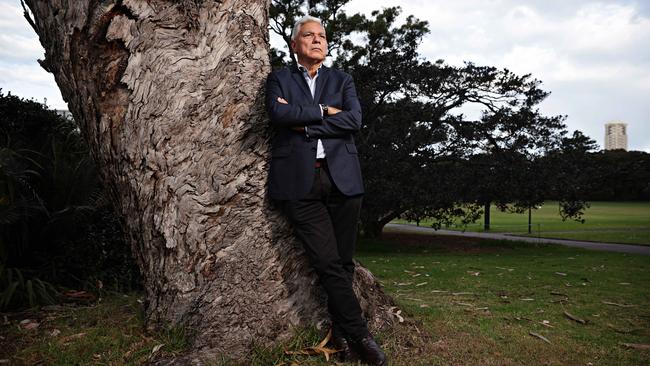
Yes23 campaigners are under no illusions they face a hard task turning this around, but they maintain that all is not lost. The reason for this is the continued widespread ignorance about the Voice.
“A lot of people don’t even know that the referendum is coming,” a Yes23 strategist said. “They don’t have the time or the bandwidth.”
Low-information voters, as they are known, have long been a problem for both sides of politics, but the level of ignorance the campaigns are dealing with is much higher than for a general election.
“Even they know they have to vote every three years or there’s an issue that they’re interested in, but this is different; in the big southern capital cities a lot of people don’t even know an Indigenous person,” the Yes23 strategist said.
Labor and Liberal Party officials agree the problem of voter ignorance is worrying, and is getting worse.
“The number of people in that camp is higher because of streaming, which means you can tune out the news.
“We’re now seeing people in (focus) groups who don’t know who the premier is,” one official said.
The Yes23 camp hopes its financial advantages will give it a better chance of reaching these voters than the No camp. It will be targeting young people and women.
The Yes23 strategist said the sexes reacted very differently when they were confronted with information about Indigenous disadvantage.
“Women are much more empathetic, whereas men tend to put the onus on fixing their problems back onto them and personal responsibility,” he said.
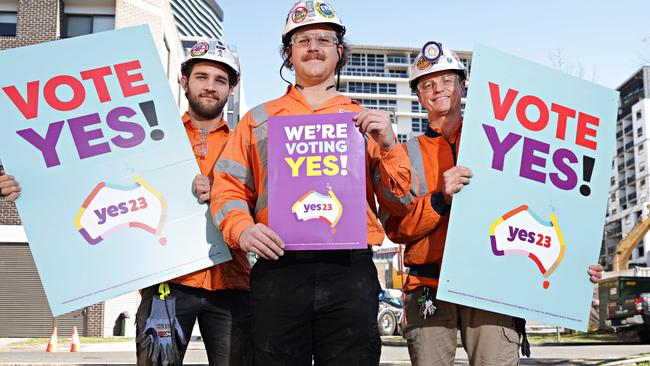
Polls consistently show that young people are most likely to vote Yes, but the campaign is aware they are also much more likely to be tuned out from the news cycle — and so there is a danger they might not vote.
“With young people, it’s about making them aware of the issue and why it’s important and how they can do something — framing it (voting) as an action point,” he said.
The campaign will also be relying on what he calls “weight of messaging”, a polite way of saying they plan to outspend their opponents, although he said reports of Yes23’s campaign war chest had been exaggerated. “We’re not going to spend $100m,” he said.
As the audience for broadcast TV has declined, people have stopped reading the mail, and even Facebook and Instagram have begun throttling political content, the political world will be watching what works in the referendum as they get ready for the next federal election.
“The big unknown is how much their money will help them, how effective their advertising is and how willing people are to change their mind,” a senior Liberal said.
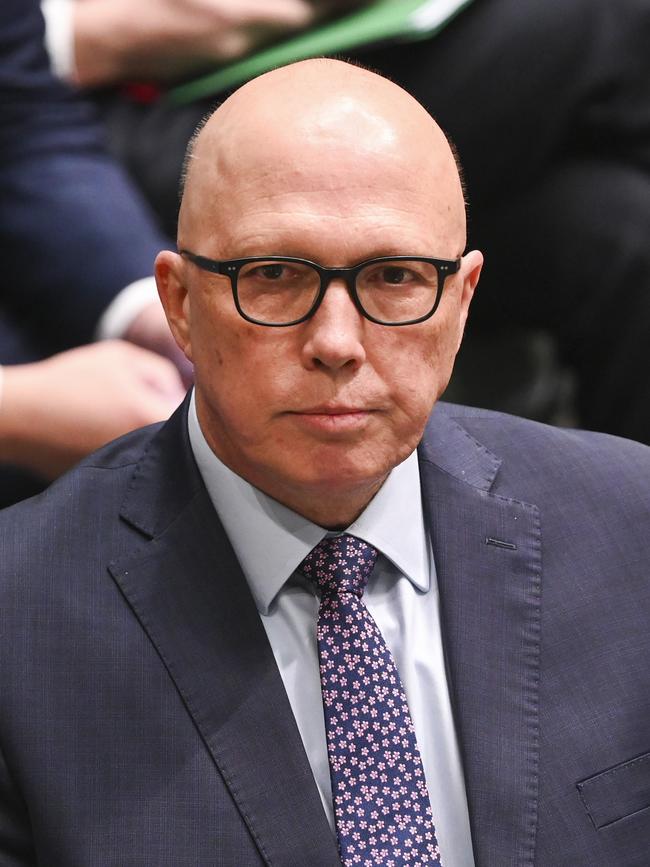
A senior Labor official said the Yes campaign would be seeking to exploit the unpopularity of Peter Dutton.
“We are confident that one of our strong arguments that we will deploy at some point is about Peter Dutton,” he said.
Referring to the Opposition Leader’s decision to boycott the 2008 parliamentary apology to the stolen generation during the Rudd government, the official said he “has a long history on these matters” and that he “wants to close the door on better outcomes” for Aboriginal and Torres Strait Islander people.
“People respond to that argument,” he said.
Both sides also said the lack of engagement with the issue among a large section of the population meant the way the two sides performed “on the day” could have a big impact.
“There will be a lot of people turning up to vote without any idea what they are going to do,” a No campaign spokesman said.
To win the floating voter on the booths, both sides have enrolled armies of volunteers.
What both sides agree on is that despite the recent tilt in polling towards No, either side can still win.
“I had a lot of people saying in January there’s no way we could win and now the same bunch of people are saying we can’t lose. And both these scenarios are wrong,” a No campaigner said.
Got a news tip? Email weekendtele@news.com.au





